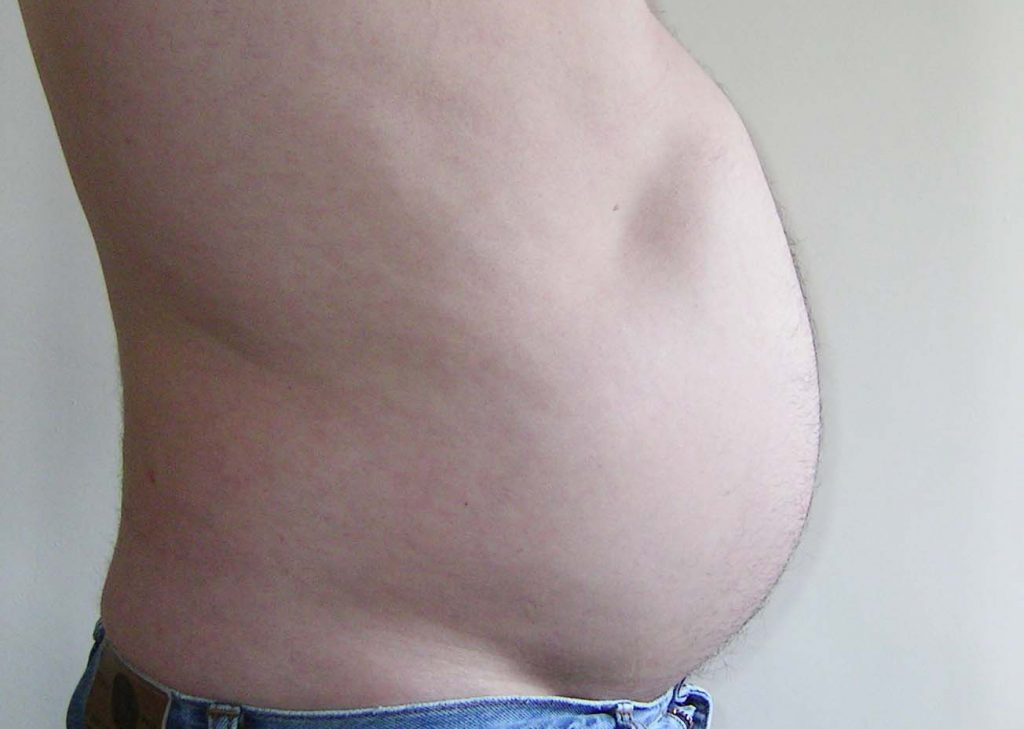Beer is said to be a liquid bread. Studies show that a standard 12 oz beer is the equivalent of 153 calories. "Light" beers, aren't so light and contain 103 calories.
With that said, drinking too much beer can lead to unwanted weight gain. A change in the way you drink beer will help keep the weight at bay.
Here are some quick tips to help prevent weight gain while still being able to drink.
How to Drink Beer Without Getting Fat

Drink in Moderation
Typically anything done in excess isn't good for your health. Research shows that our bodies utilize alcohol as energy first. After that, it draws energy from other sources in our body such as non-oxidized fat which is then deposited in the belly area. This is where the term ‘beer belly’ comes from.
Keep in mind that it is perfectly okay to let loose from time to time. However, excess drinking can lead to weight gain, which is often overlooked. "Freshmen fifteen" might of been cute in college but it's not cute in your late 20s and early 30s.
Binge Eating is a Big NO
Drinking is only half the problem of your unsightly weight gain. Usually when you're drinking, you're also eating and the foods taste even better after you've had alcohol. The body is often fooled into thinking it's hungry.
Eating Veggies?
Carrot sticks, broccoli, and cucumbers are foods that also go well with beer. They are healthy alternatives to a greasy piece of pizza, wings, or a burger.
Leaner cuts of meat are also a great alternative to fatty french fries and chips. For instance poultry and fish go great with lighter colored beers and smoked BBQ meat goes great with dark beer.
Drink ‘Differently’
Non-alcoholic beer contains minimal to no alcohol content and therefore doesn't tax your metabolism as noted above.
Non-alcoholic beer also contains significantly less calories and carbohydrates than a standard beer while still offering the taste that you know and love.
Choose the ‘Right’ Beer to Drink

If drinking only light beer doesn't tickle your fancy, then simply picking quality over quantity is best. Drinking only one, savory, heavy beer instead of 6 light ones has added benefits.
Here a number of beer options to consider trying:
Budweiser Select 55: This beer contains 55 calories and ABV of 2.4%
Amstel Light: This beer contains 95 calories and is one of the better light beers available. It's ABV is 3.5%.
Sam Adams Light: This beer has 119 calories and ABV of 4%. It offers a satisfying nutty flavor.
Guinness: This is a popular heavy beer containing 126 calories and ABV of 4%.
Drinking Responsibly: Calories, ABV, and More
- Start by paying attention to Alcohol by Volume (ABV).
- Choose light beer like pilsners, summer ales, and Belgian whites.
- Go with smaller quantities like a tasting portion to sample a variety of beer.
You should always keep these tips in mind when drinking:
- Always drink in moderation, with food. Never eat on an empty stomach as the food helps to absorb the alcohol and make your drinks last longer.
- Ask for a glass of water along with your beer. The water will help keep you hydrated and to pace yourself.
- Monitor your drinks and keep track of how many you've had. Finish one beer completely before moving on to another.
Conclusion
Hopefully this guide will help put a beer in your hand without creating a beer belly. Remember to drink responsibly, eat food while you drink, and opt for light beer or quality over quantity.

